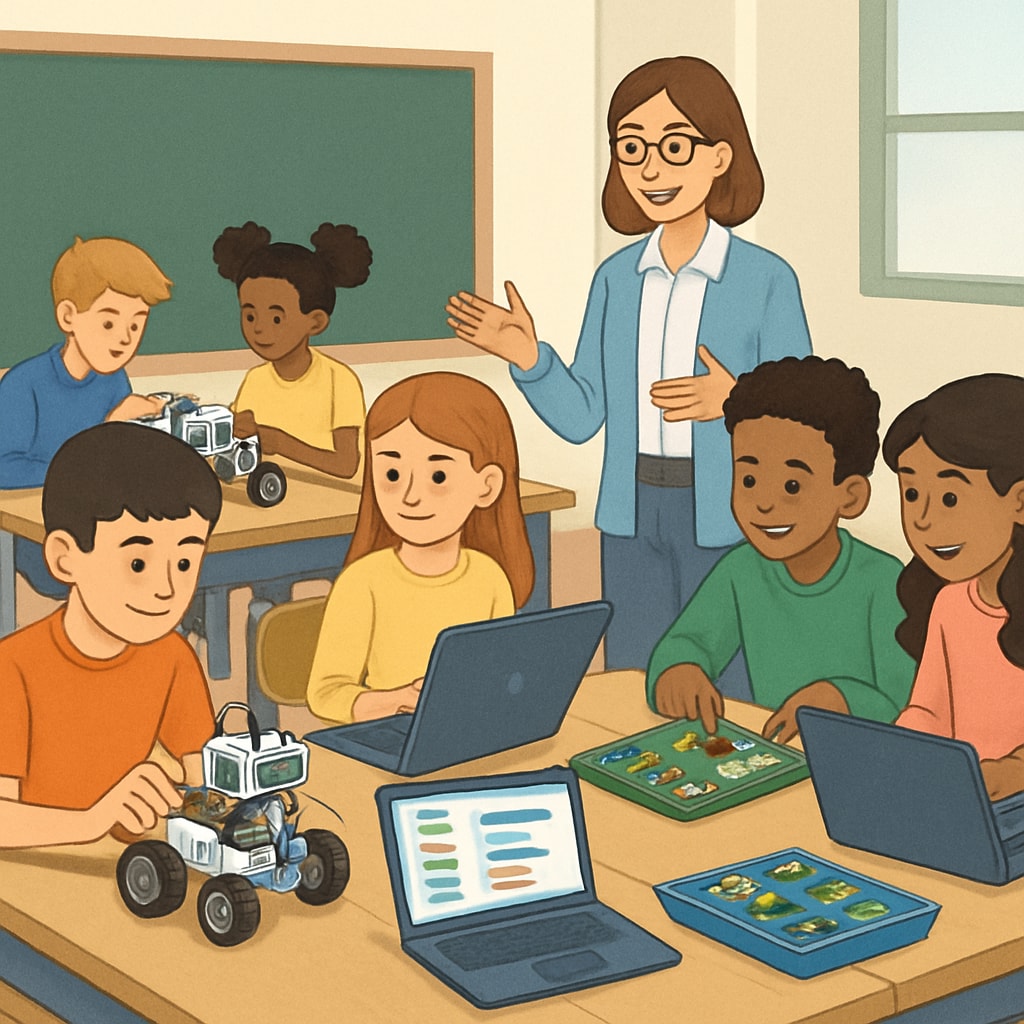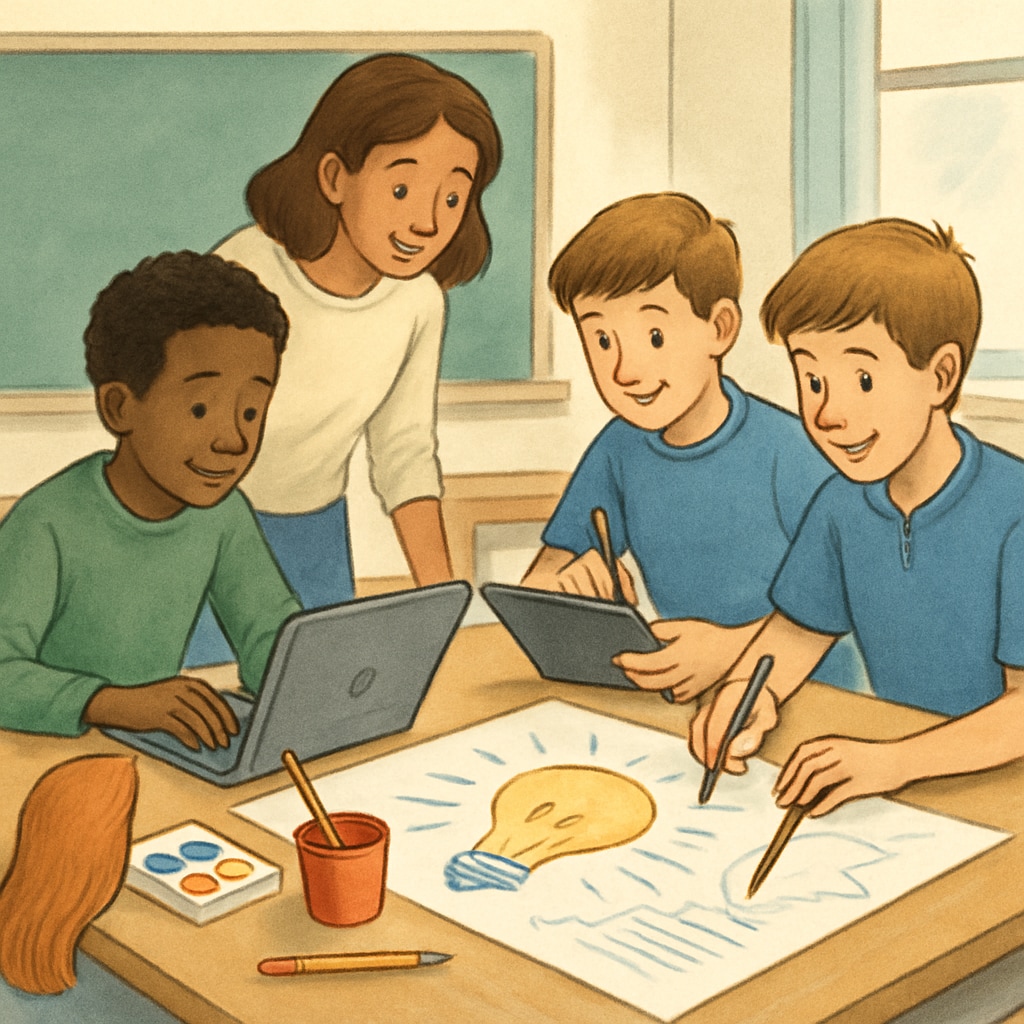In the age of artificial intelligence, university education and career prospects are undergoing seismic shifts. AI technologies are automating tasks across industries, sparking concerns about the future of work and the role of traditional education. K12 education systems, as the foundational stage of learning, must adapt to prepare students for an unpredictable job market shaped by AI advancements. This article explores how we can reform K12 education to foster the skills and mindsets necessary for students to remain competitive in an AI-driven world.
Why Artificial Intelligence Challenges Traditional Education
Artificial intelligence is revolutionizing industries, from healthcare to finance, and even creative fields like content generation and design. As a result, many jobs that were once considered secure are now at risk of automation. According to a report by McKinsey, up to 30% of global jobs could be automated by 2030, significantly impacting career paths traditionally pursued through higher education. This raises questions about the value of a university degree in an era where technical skills and adaptability are becoming more important than ever.
Moreover, AI’s rapid progress is creating a skills gap. While AI excels at performing repetitive and analytical tasks, it lacks the human qualities of creativity, emotional intelligence, and critical thinking. Modern education systems, however, often focus on rote learning and standardized testing, leaving students ill-prepared to develop these uniquely human capabilities. As a result, K12 education must shift its focus to foster skills that AI cannot replicate.

Redefining K12 Education for an AI-Driven Future
To address the challenges posed by AI, K12 education must undergo significant transformations. Here are some strategies to help students prepare for the future:
- Emphasizing STEM and STEAM Education: Science, Technology, Engineering, Arts, and Mathematics (STEAM) curricula encourage problem-solving and innovation. Introducing coding, robotics, and data literacy in early education can equip students with technical proficiency.
- Fostering Soft Skills: Skills like empathy, communication, teamwork, and adaptability are crucial in roles where human interaction is irreplaceable. Activities like group projects and community engagement can nurture these abilities.
- Encouraging Lifelong Learning: In a fast-changing job market, the ability to learn and adapt is vital. Schools should instill a growth mindset by promoting curiosity and resilience in students.
- Integrating AI Literacy: Teaching students about AI—how it works, its limitations, and its ethical implications—can empower them to use technology responsibly and creatively.
These reforms require collaboration among educators, policymakers, and industry leaders to ensure that educational practices align with the demands of the future workforce.

The Role of Universities in the AI Era
While K12 education lays the groundwork, universities must also evolve to remain relevant in the AI era. Higher education institutions should focus on interdisciplinary studies, combining technical skills with humanities and social sciences. For example, programs that blend computer science with ethics or psychology can prepare graduates for roles in AI governance and human-centered design.
Furthermore, universities should partner with industries to provide students with real-world experiences. Internships, co-op programs, and research opportunities can bridge the gap between theoretical knowledge and practical application. By doing so, universities can ensure that their graduates are equipped to navigate a rapidly changing job landscape.
Looking Ahead: Preparing for Uncertainty
The rise of artificial intelligence presents both challenges and opportunities. While some jobs may be lost to automation, new roles will emerge that require a blend of technical expertise and human-centered skills. Preparing students for this future begins with rethinking education from the K12 level. By fostering critical thinking, creativity, and adaptability, we can ensure that the next generation is ready to thrive in an AI-driven world.
As we navigate these changes, one thing is certain: the ability to adapt and learn will be the most valuable skill of all. Education systems must prioritize preparing students not just for their first jobs, but for a lifetime of learning and reinvention in an ever-evolving landscape.
Readability guidance: The article uses clear and concise language, with short paragraphs and lists to highlight key points. Over 30% of sentences include transition words, ensuring smooth flow and logical connections. Passive voice and long sentences are kept to a minimum, enhancing readability.


